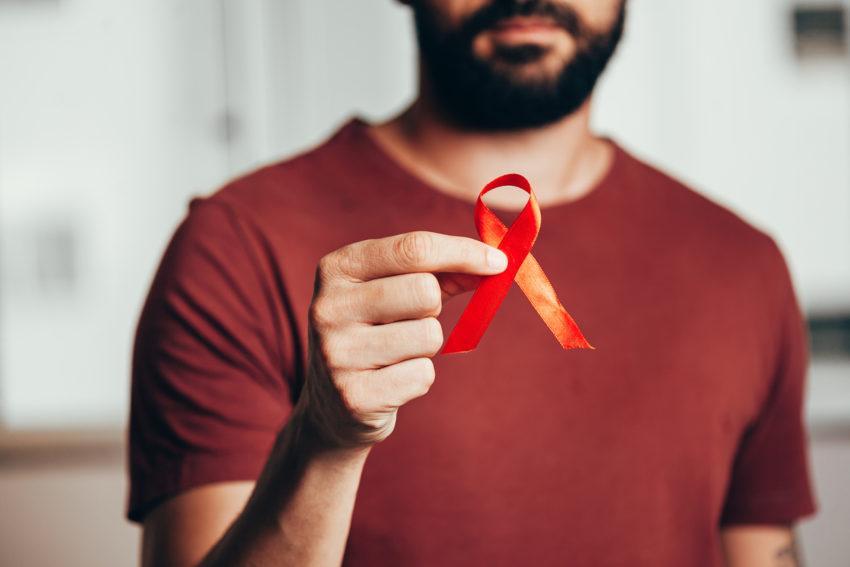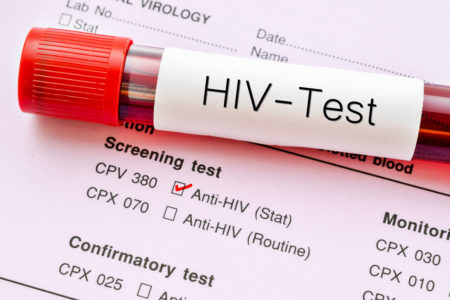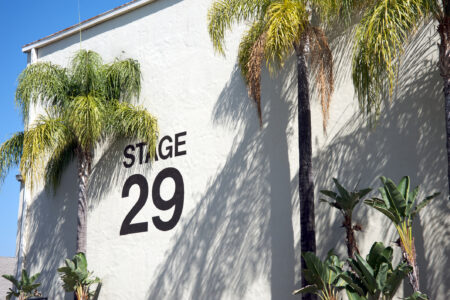
Share On Social!
HIV and AIDS are a serious threat to the Latino community.
Latinos make up about 29% of new HIV diagnoses, despite being 18.5% of the population, according to the CDC.
The number of HIV diagnoses among Latinos is growing, especially in the LGBTQ community. About 85% of Latinos who have HIV/AIDS are gay or bisexual men, according to a new research report from ViiV Healthcare, an organization focused on fighting HIV.
The study, released shortly before National Latino AIDS Awareness Day on Oct. 15, 2020, indicates the need to address this vulnerable community.
About the Study: Here as I Am
ViiV Healthcare’s new report is called Here as I Am: A Listening Initiative with Latinx Gay and Bisexual Men Affected by HIV.
The report includes a six-month community-based research study with the Latino Commission on AIDS and a 10-month listening initiative with group discussions, interviews, and community mapping.
The results revealed many challenges that the Latino community faces in the HIV/AIDS battle.
“Despite progress made to decrease HIV diagnoses in the US overall, disparities still exist — particularly for people of color,” said Marc Meachem, Head of US External Affairs at ViiV Healthcare, according to their website. “Further, while we have medicines to effectively treat and manage HIV, one-in-three Latino men living with HIV are not virally suppressed. The unique experiences of the Latinx community necessitate community-driven approaches to close gaps in care in order to meet the national goal of ending the HIV epidemic by 2030.”
Here as I Am had several key insights on how gay and bisexual Latino men are affected by HIV/AIDS:
- Family and community are central to men’s lives and identities, shaping their health and wellness for better or worse
- Interruptions in care happen for many reasons beyond men’s control
- Anti-immigrant sentiment and anti-immigrant laws have a powerful effect on men’s health
- Men want diverse and response care that reflects their needs, identity and language
- Resilience is activated through networks and services by and for Latino men, especially youth
“The histories of Latinx communities are colorful, multifaceted and full of life and celebration. At the same time, they are complex, intersectional and influenced by many of the challenges that too often disproportionately affect communities of color,” said Guillermo Chacón, President of the Latino Commission on AIDS, according to ViiV Healthcare.
Why are Latinos Disproportionately Affected by AIDS?
Discrimination and other systemic barriers often prevent Latinos from receiving adequate health care in general.
“A widening socioeconomic gap, racism, and discrimination contribute to inequitable distribution of healthcare and mental and physical health disparities among Latinos and other people of color and those in poverty, especially amid COVID-19,” according to a Salud America! research review.
This is true for challenges Latinos face in the HIV epidemic, too.
“Class disparities, such as housing and income instability, employment barriers and integrating into a new city, severely complicate men’s ability to achieve health and obtain and utilize prevention, care and treatment services,” according to the Here as I Am report.
Sadly, stigma against AIDS and sexual minorities can prevent Latinos from seeking help in the first place.
“While many men [in the study] described experiencing homophobia, biphobia and transphobia as a negative force in their lives, men also described discrimination, ostracism and violence stemming from their race, skin color, accent, immigration and documentation status, nationality, HIV status and age,” according to the Here as I Am report.
National Latino AIDS Awareness Day
October 15th is National Latino AIDS Awareness Day.
This day is meant to recognize and address the impact that HIV and AIDS has on the Latino community.

HIV.gov lists several resources to share on this day:
- The national Ready, Set, PrEP program provides free PrEP medications to those who qualify.
- The HIV Testing Sites & Care Services Locator uses your ZIP code to help you find services for HIV testing, care, and treatment (including access to PrEP); housing; mental health/substance use; and family planning.
- The Ending the HIV Epidemic: A Plan for America (EHE) initiative seeks to reduce the number of new HIV transmissions in the United States by 75% by 2025, and then by at least 90% by 2030.
The Latino Commission on AIDS and ViiV Healthcare are also doing their part.
“Together we will use insights gleaned from ‘Here as I Am’ to develop programs that make space for the Latinx community to feel seen, heard and supported through every obstacle in hopes of improving HIV outcomes,” Chacón said, according to ViiV Healthcare.
Kind Clinic: An HIV Resource in South Texas
A resource for Latinos seeking HIV-related treatment who are located in San Antonio, Austin, and other South Texas areas is Kind Clinic.
Kind Clinic is a program of Texas Health Action, a community informed non-profit dedicated to providing culturally affirming, health services with an expertise in serving LGBTQ people and people impacted by HIV. They offer many free services and can help those who are uninsured.
Their areas of expertise include:
- HIV transmission and rates
- HIV testing and prevention including access to PrEP (pre-exposure prophylaxis) and PEP (post-exposure prophylaxis)
- HIV care
- Sexual health
- STI transmission and rates
- STI testing and treatment
- Gender-affirming care
What Can You Do?
HIV and AIDS will persistently harm the Latino community unless we take action to end the stigma.
ViiV Healthcare launched an initiative called Positive Action for Latinx Men to help support those affected by HIV. Their suggestions include the following:
- Building and elevating Latino leadership in the HIV community, locally and nationally, to strengthen unity and mobilize the community to work collectively, lessening the impact that HIV has on men’s lives;
- Responding to the unique needs, identity and language of Latino men and working with the community to promote HIV care that is diverse and responsive;
- Strengthening supportive networks for men to share their ambitions and concerns about reaching their health and wellness goals; elevating opportunities to educate around HIV; and connecting men, families, allies and communities; and
- Working to combat anti-immigrant sentiments and laws that have a powerfully negative effect on the health of Latino men living with and affected by HIV.
One of the most important steps in ending the HIV epidemic is sharing stories to give hope to those affected by HIV or AIDS, Meachem said, according to Al Día News.
“Many of us think we are alone when facing life’s trials. In the moment, it can be hard for us to realize that there are many who have experienced or are experiencing the same challenges,” Meachem said. “Elevating the voices of community through research and sharing those voices in cultural settings (plays, stories, poetry) is a more robust way to engage people and communities in facing and addressing the issues they face.”
By The Numbers
142
Percent
Expected rise in Latino cancer cases in coming years



